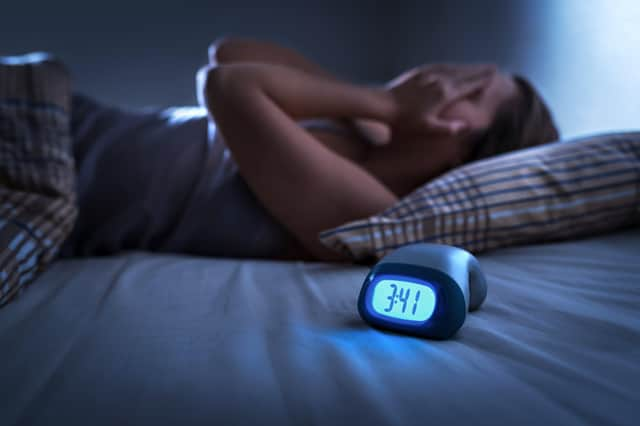How lockdown is causing a naton of insomniacs - Catherine Scott


I am normally a pretty light sleeper, but since the start of the pandemic I rarely grab more than four hours in a row.
I normally manage to drift off after a few pages of my book, but then wake between 3am and 4am with my mind spinning. I probably manage to fall asleep again but that mean I struggle to wake up in the morning.
Speaking with friends it seems I am not alone.
Advertisement
Hide AdAdvertisement
Hide AdIs it the worry? Is it the lack of social stimulation ? Is it too much wine or coffee ? Too much screen time working from home? It’s probably a combination of all of the above.
Well this week I received a press release about a phenomena dubbed ‘coronasomnia’ – who’d have thought it? It seems that many of us are having disturbed sleep.
It talked about a recent study which revealed that insomnia rose from one in six to one in four people, with more sleep problems in communities including mothers, essential workers and BAME group since the start of the pandemic.
The word “insomnia” was also googled more in 2020 than it ever was before.
Advertisement
Hide AdAdvertisement
Hide AdAccording to the Sleep Foundation the rise in insomnia could be caused by the profound changed to normal routines for people of all ages and walks of life by social distancing, school closures, quarantines, and working from home. Being stuck at home, especially if it has low levels of natural light, may reduce light-based cues for wakefulness and sleep, known as zeitgebers, which are crucial to our circadian rhythm. Ironically, now is the time when we need sleep more than ever as it helps to boost our immune system, something that’s necessary when fighting a virus. Sleep also helps to boost our mental wellbeing – something that is desperately needed at the moment.
So what can we do about it ? The Sleep Foundation suggests trying to create some structure and routine back into our lives. Set an alarm even if you aren’t working at the moment, shower and dress even if no one is seeing you, try to take regular meals and have some wind down time before bed. And, say the experts, bed should be for sleeping and not for catching up on emails or watching a box set on your laptop.
Of course, a healthy diet, not too much alcohol and caffeine, regular exercise and reducing screen time will all help. Another suggestion is taking a magnesium supplement, Nutritionist Cassandra Barns explains: “Magnesium is known as ‘nature’s tranquilliser’ and helps us to fall into a peaceful sleep.” Bring it on.
Comment Guidelines
National World encourages reader discussion on our stories. User feedback, insights and back-and-forth exchanges add a rich layer of context to reporting. Please review our Community Guidelines before commenting.